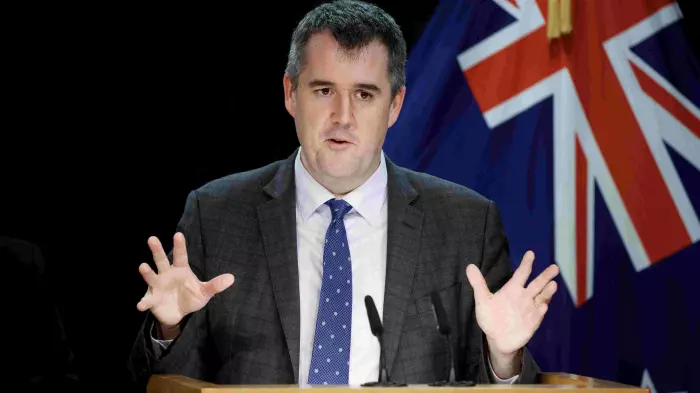National’s coalition agreements with Act and New Zealand First agree that the cabinet manual’s “no surprises” policy “needs clarification to better respect the privacy of individuals”.
The Institute of Public Administration NZ (IPANZ) suggests a more fundamental overhaul of the entire “no surprises” approach is necessary.
Now, at the beginning of the new parliamentary term, is the time to do it.
The cabinet manual describes the “no surprises principle” for officials, noting that, as a general rule, they should inform ministers promptly of matters of significance within their portfolio responsibilities, particularly where these matters may be controversial or may become the subject of public debate.
The new political advisers appointed to the ministers’ offices will be keen to make their ministers look good or at least protect them.
They may misinterpret the duty of the departments to ensure “no surprises” and, therefore, demand information from chief executives that is not appropriate to reveal.
A misleading term
“No surprises” is a misleading term. It is impossible to avoid all surprises for governments, and it is definitely not the job of public servants to protect ministers from political embarrassment.
Furthermore, it is not a principle – the principles of the rule of law, the non-partisan public service and the constitutional boundary between ministers and public servants are the important enduring principles.
“No surprises” can be called a duty – a “duty to inform”. It was first introduced in the late 1980s.
The concept was first described under the fourth Labour government with the establishment of the state-owned enterprises model and then, during the Bolger administration, was codified in the cabinet manual.
In the view of some commentators, it is being used more frequently over time. Interestingly, no other Westminster jurisdiction has a “no surprises” duty.
The original wording and intent was “early warning”.
Early warning v no surprises
IPANZ believes the “no surprises” nomenclature has passed its use-by date and should be replaced by “early warning”, which is more accurate.
More background and the 2021 IPANZ position on why “early warning” should replace “no surprises” can be accessed on the IPANZ website.
Trust between a minister and senior officials is vital for the smooth running of government and is especially important as a new government establishes its relationship with the public service.
This “duty to inform” a minister of upcoming contentious issues can assist in building and maintaining trust. Furthermore, it is a duty to inform a minister of matters within their portfolio, not to inform politicians more broadly.
Clearly, decisions on what and what not to tell a minister are matters of fine judgment by the chief executive.
These judgments are at the heart of the constitutional roles of the executive and the non-partisan public service. An experienced CE walks the line very well.
The guidance in the cabinet manual does not clearly cover what officials must NOT disclose to a minister.
To keep ministers safe, the duty not to inform would include the details of individual cases so citizens’ privacy is protected.
Protecting private information
Personal information is one of the most important matters.
An underlying principle expressed in the Privacy Act is that personal information can generally only be used for the purpose for which it was collected, with the informed authorisation of the individual concerned.
The Privacy Commissioner issued new guidance to government departments and ministers to help them determine when personal information can be disclosed to a minister by a government department in December 2020.
The cabinet manual was revised in 2023 following this guidance and stated that “the convention of ministerial accountability and the 'no surprises' principle do not override the Privacy Act 2020's disclosure principles or other statutory restrictions on disclosure".
There is some complexity and nuance in this regard because of the different roles ministers can play – as warrant holders, as electorate MPs, answering questions in the House. Sometimes, ministers receive personal information to exercise their statutory duties, and these statutory duties override the Privacy Act. One example is the Immigration Act 2009.
It is possible for a department to give an early warning to a minister without sharing personal information.
The guiding rule should be: does the minister need this information to discharge the responsibilities of their ministerial warrant (but no more)?
Not all surprises
In other words, ministers can be appropriately forewarned, but not of all ‘surprises’.
The new government has noted that the present “no surprises” policy needs clarification to better respect the privacy of individuals. IPANZ argues a fuller review of the policy is warranted.
“No surprises” is a loose concept with ill-defined boundaries. As such, it does not serve the relationship between ministers and officials well.
The trust between the new government and the public service is crucial, but so is the trust of New Zealanders in their government and public service.
“No surprises” is fundamentally about the constitutional relationship between ministers and public servants. Affirming this constitutional boundary is vital for integrity.
It will serve the new government well to attend to this at the outset.










